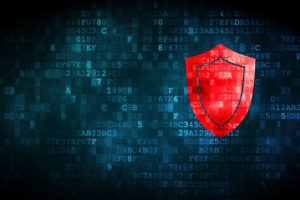
Juniper Research has estimated that cybercrime could rise by as much as 175% over the next 5 years and, of course, as hackers get more sophisticated and determined to succeed, so must we make sure we are doing all we can to make life difficult for them. Why be an easy target? It’s not just large-scale organisations like banks and hospitals that are the targets for cyber crime.
Hackers infiltrate every level of business to add links and diverts to other websites, they compromise your client data (could your business afford even a sniff of that?) and generally cause trouble whilst they are poking around your systems. There is much in the news about wide-spread attacks, one of the latest being the new energy smart meters that we are being urged to introduce to our homes. It is anticipated that these could be a relatively easy target – which brings all sorts of other, mass consumer, digitally connected devices into question. However, many hackers go for the low hanging fruit which means they will enjoy easy pickings and wreak havoc within businesses who aren’t protecting themselves sufficiently.
We are reading about botnets, swarm networks and hive nets to name just a few of the ways our systems are being targeted. The level of complexity is such that it is hard to put into words for a savvy IT business, let alone the man in the street. It’s complicated and, most importantly, it’s not going away anytime soon. We work very hard to make sure that docSAFE is protected under multiple layers of security and this is something we have always done to stay ahead of the game. We are always updating, improving and building the layers we employ – to protect your data and also all the data you hold on clients, suppliers and your staff, for example. This isn’t just for GDPR – it’s for business survival!
“Given the benefits of the networked world, the move to digitalisation isn’t going to slow down. It’s important we realistically assess our dependence upon cyber and the potential consequences of a disruptive attack. Maintaining physical backups or other redundancies, changing operational processes, and even keeping less data can reduce the impact of a successful attack.” says Suzanne Spalding, former DHS Under Secretary, USA.
It is expected we will see more ransomware – malicious software that blocks access to a computer system until a sum of money is paid. Crypto-jacking – the practice of taking over a device or network of devices to operate a crypto mining operation (a digital or virtual currency that is used and operated independently of a bank) and other such attacks.
Talk to us and make sure you don’t fall victim to any cyber crime this year.
